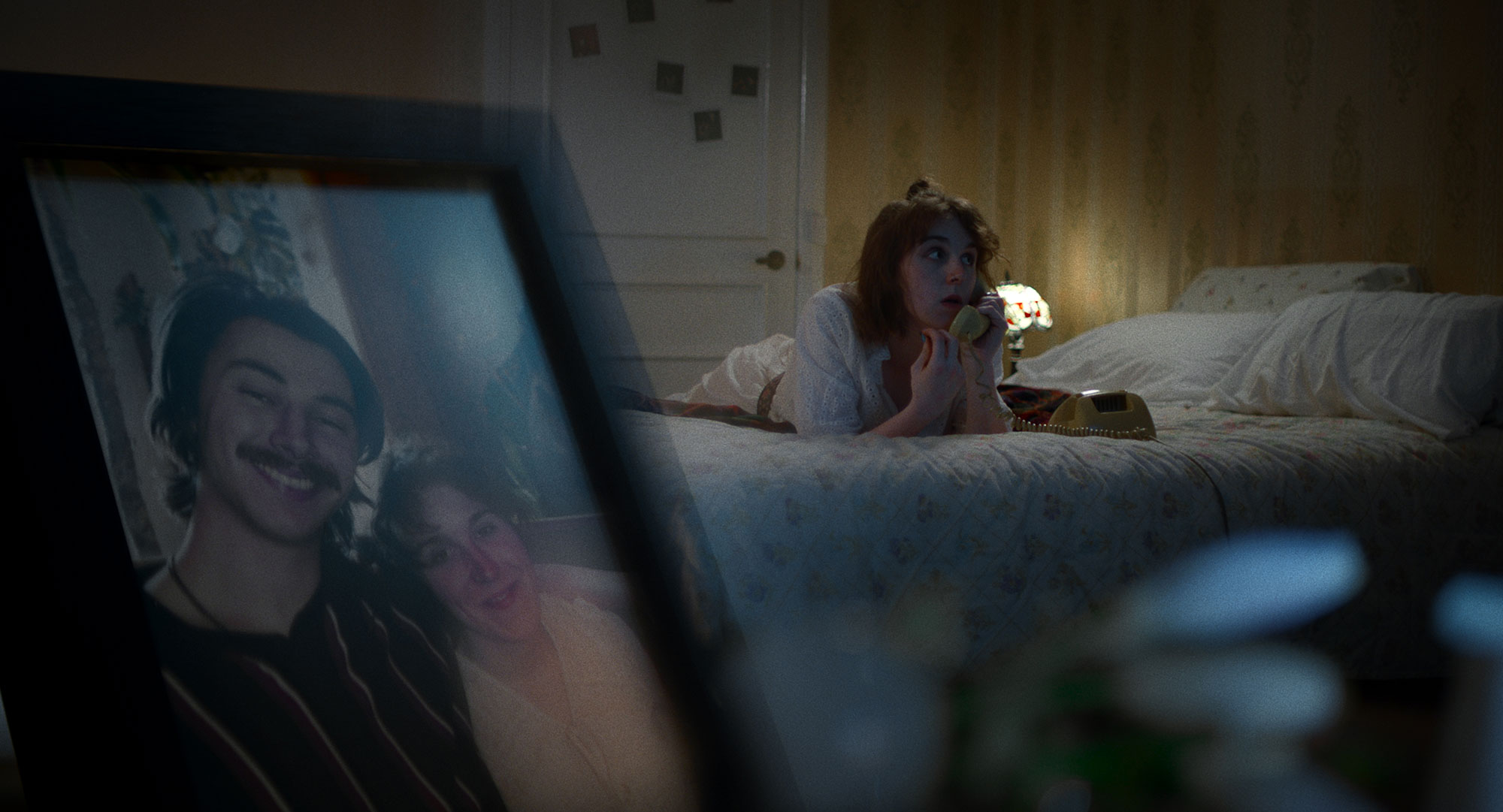23 | 11 | 2025
Winners of the 2025 Australian Shorts & Awards Announced

Celebrating bold storytelling that champions queer resilience and elevates emerging talent
Melbourne Queer Film Festival (MQFF) has announced the winners of its 2025 Australian Shorts & Awards program, celebrating bold storytelling, queer resilience and standout emerging talent. Presented as part of the festival’s 35th anniversary season, this year’s award recipients reflect the festival’s theme, Searching for Queer Utopias, with films that explore liberation, identity and the transformative power of community.
MQFF Chief Executive Officer David Martin Harris says, “MQFF’s Shorts and Awards are truly the heart of the festival – these films highlight the sharpest and most inventive filmmaking coming out of Australia and beyond. We’re proud to acknowledge and support these talented artists who are driving the zeitgeist of LGBTQIA+ storytelling. This is the creative future of our communities – with bold storytelling, proud voices, and an abundance of bravery.”
Presented at The Capitol Theatre, winners were selected by an esteemed jury: Anton Astudillo (Film Programmer, NewFest), Jenna Dufton (Festival Director, Inside Out), Nick McCarthy (Director of Programming, NewFest) and Ramon Te Wake (Director, Producer, Writer and Actor).
MQFF Program Director Ro Bright adds, “Sitting in cinemas with Naarm audiences, I’ve witnessed communities completely fall in love with this year’s award-winning films. Fierce, funny, unapologetic, and deeply personal, these works showcase political visions that centre distinctive queer cinematic voices. Remember their names: these award winners are the artists shaping the future of film. We are proud, and grateful that they chose to share their work with us.”
2025 MQFF Australian Shorts and Awards Winners
City of Melbourne Award for Best Australian Short Film ($5,000)
Winner: The Dysphoria, Directed by Kylie Aoibheann
A bold and darkly comic horror short, The Dysphoria follows a trans woman who inadvertently summons a demon while performing a ritual to obtain the body she desires. Blending practical effects with sharp humour and emotional insight, the film subverts genre expectations while embracing the core elements of horror. Aoibheann brings together a powerhouse cast to create a provocative and unforgettable work that expands the possibilities of trans storytelling on screen.
– The jury commended the film for its provocative, original and genre subverting approach, calling it a powerful commentary on gender, identity and autonomy, and a standout work for the future of trans cinema.
VicScreen Award for Best Director: Australian Short Film ($2,500 dollars)
Winner: Wild Dog, Directed by Chelsea Ingram
Set on a rural Queensland farm, Wild Dog centres on fourteen year old Sam, who is quietly wrestling with his attraction to Matt, his sister Bianca’s older boyfriend. With no adults around and wild dogs howling through the night, the weekend becomes a volatile mix of desire, jealousy and sibling tension. Ingram crafts an emotionally charged coming of age story that examines queer longing within a landscape shaped by rural masculinity, showcasing her confident visual style and a strong sensitivity to performance.
– The jury praised Ingram’s confident and perceptive filmmaking, describing the film as striking, vividly crafted and a compelling showcase of an exciting new Australian director.
Shaun Miller Award for Best Australian Documentary Short ($1,000 dollars)
Winner: Small Town Pride, Directed by Nathan Dyer
In a remote outback community, a determined queer group fights to keep their local pride weekend alive. Through the interconnected stories of three locals, Small Town Pride reveals both the challenges and the deep sense of solidarity that underpin queer life in isolated regions. Dyer offers a portrait filled with warmth, resilience and a clear sense of place, celebrating the strength of community in the face of adversity.
– The jury praised the film as a moving and heartfelt exploration of queer resilience in a remote Australian town.
MQFF Iris Prize Nomination
Winner: Strange Brother, Directed by Annelise Hickey
When Adam, a lonely and self focused millennial, wakes to find his estranged half brother on his doorstep, he is forced to confront the family ties he has long avoided. Inspired by her own experience and premiering at Sundance, Hickey’s film offers an intimate and compassionate portrayal of Pasifika men and the quiet but powerful bonds between siblings. With grounded performances and emotionally resonant writing, Strange Brother builds toward a deeply felt and earned emotional peak.
– The jury highlighted the film’s intimate performances and emotionally resonant storytelling, calling it a lived in and compassionate portrait with a deeply earned emotional climax.
Best International Short Award ($1,000 dollars)
Winner: Picking Crew, Directed by Tanu Gago
Set in a rural Aotearoa apple orchard, Picking Crew follows Tomasi, a young man searching for connection amid the long days of seasonal work. His growing friendship with Api reveals their shared struggles with belonging, self expression and desire. With tender cinematography and textured performances, Gago captures a moving portrait of Pasifika masculinity and queer intimacy that is deeply rooted in lived experience.
– The jury praised the film as a tender and visually rich exploration of Pasifika masculinity, belonging and queer desire.
Best First Feature Documentary ($2,500 dollars)
Winner: Niñxs, Directed by Kani Lapuerta
Developed over eight years, Niñxs reimagines the coming of age documentary by centering the playful and fearless spirit of queer teenager Karla Bañuelos. Filmed as a shared cinematic diary between Karla and director Kani Lapuerta, the documentary challenges conventional filmmaker subject dynamics. In a conservative small town, Karla begins her legal transition with a community of punk spirited friends and loving parents behind her. Niñxs celebrates agency, collaboration and the joy of youth.
– The jury recognised the film for redefining the queer youth narrative through its collaborative approach and the vibrant presence of its young protagonist.
Award for Best First Feature Narrative ($2,500 dollars)
Winner: The Crowd, Directed by Sahand Kabiri
Set in Tehran, The Crowd follows Hamed and his friends as they attempt to throw a simple farewell party for Raman, an act that becomes charged with risk under restrictive social conditions. As they transform an abandoned warehouse and tensions rise, the group confronts family conflict, fear and the deep need for connection. Based on Kabiri’s own experiences and shot independently over twelve days, the film is a vibrant portrait of queer community, chosen family and everyday acts of resistance.
– The jury described the film as a powerful testament to solidarity and collective resistance, celebrating the strength of queer community under oppressive circumstances.
Audience Choice Award for Best Short Film ($1,000 dollars)
Winner: I’m the Most Racist Person I Know, Directed by Leela Varghese
Lali has written her crush a song but her lyrical efforts are awkwardly misplaced. Saved by Ana, the two end up on a date, where Lali is forced to confront her prejudices. Directed by Leela Varghese (Lesbian Space Princess), this SXSW Special Jury Award Winning short is charming, exuberant, and a dreamy feast for the ears and eyes. Filmed in Adelaide’s Marys Poppins bar, with a comedic sensibility and a dorky genius rom com vibe, Varghese proves again her voice is one of the most important coming out of Australian cinema today.
